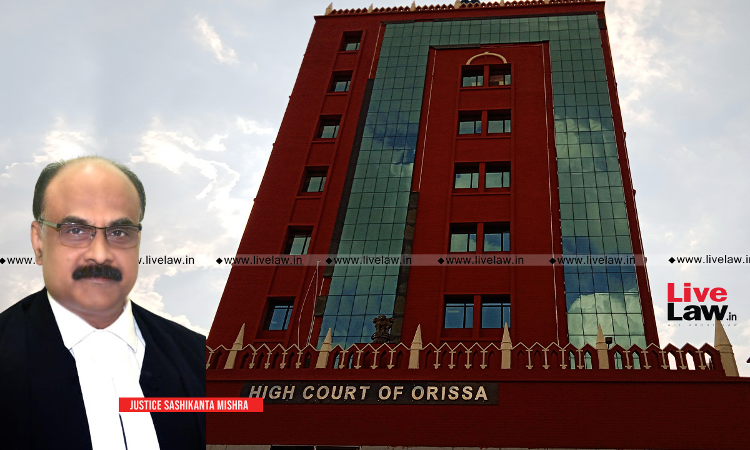- Home
- /
- High Courts
- /
- Orissa High Court
- /
- Court Can't Deny To Pass Decree...
Court Can't Deny To Pass Decree Based On Mediation Report After Referring Dispute To Mediation: Orissa High Court
Jyoti Prakash Dutta
27 Oct 2025 5:30 PM IST
The Orissa High Court has held that after referring a dispute to mediation, the referring Court cannot deny to accept the mediation report nor it can defy its duty to pass a decree basing upon the solution/compromise arrived at in the mediation.Setting aside the order of a Civil Court denying a decree based on mediation report, the Bench of Justice Sashikanta Mishra observed –“As...
The Orissa High Court has held that after referring a dispute to mediation, the referring Court cannot deny to accept the mediation report nor it can defy its duty to pass a decree basing upon the solution/compromise arrived at in the mediation.
Setting aside the order of a Civil Court denying a decree based on mediation report, the Bench of Justice Sashikanta Mishra observed –
“As already stated, in the instant case the trial Court, on the prayer of the parties referred their dispute to mediation. This implies that the Court was of the view that the dispute could be settled through mediation as otherwise such a reference would not have been made. Having itself made the reference, this Court fails to understand as to how it was held that though the dispute was settled, no decree recording such settlement could be passed.”
The petitioners (plaintiffs in the original suit) filed a suit in the Court of Additional Civil Judge (Senior Division), Cuttack praying for a declaration in their favour affirming their right to passage over a government land. They further asked for a permanent injunction against the opposite parties (the defendants) for restraining them from raising any structure over the said land.
During pendency of the said suit, the parties decided to settle the dispute through alternative dispute resolution (ADR) for which they filed a petition under Section 89 of Code of Civil Procedure (CPC) with a prayer to refer the case to mediation. Such prayer of the parties was allowed and the suit was referred to a Mediator. Upon due deliberation in the mediation proceeding, the parties ultimately decided to resolve the dispute.
Both the parties admitted that they have no right, title, interest or possession over the suit property and they agreed to desist from raising ownership claim over the same in the future. It was further agreed that they shall not obstruct each other from using the suit property, including the right to passage and shall not construct any permanent structure. The mediation was successful and the mediator submitted his report before the trial Court.
Though both the parties prayed for acceptance of the mediation report and a decree on that basis, the trial Court did not accept such prayer and denied to pass any decree on the ground that a decree of declaration cannot be passed upon mere compromise/understanding entered into between the parties and that for such decree, positive evidence must be led. Being aggrieved by such order, this civil miscellaneous petition was filed before the High Court.
Justice Mishra, after hearing the parties, noted that Section 89(2)(d) of the CPC makes it clear that the Court has the power to effectuate a compromise between the parties in cases where the dispute has been referred to mediation. Further referring to Order X Rule 1-A of CPC, he held–
“Thus, alternative dispute resolution has become a statutory imperative in cases that have elements of settlement. In fact, it is mandatory for the Court to consider at the time of first hearing, if the matter could be settled outside the Court as per Section 89(1) by opting for any of the modes prescribed thereunder.”
The Court highlighted that in Afcons Infrastructure Limited v. Cherian Varkey Construction Company (P) Limited (2010), the Apex Court categorically held that it is mandatory for Court to consider feasibility of ADR in resolving disputes. Only where the case falls under an excluded category, there need not be any reference to ADR process and in every other case, reference to ADR process is a must.
In the aforementioned judgment, the Supreme Court, by way of illustration, held disputes between neighbours relating to the easementary rights to be suitable for mediation. Justice Mishra underlined that plaintiffs and the defendants are adjoining land owners, each claiming right of passage over the scheduled land without claiming any ownership. The dispute was settled as the parties agreed to have equal access to the passage, which was reflected in the mediation report.
Referring Rule 25 of the Civil Procedure Mediation Rules, 2007, the Court held that once the dispute is settled and a mediation report is submitted before the Court, there is no other option available for the Court than to pass a decree in accordance with the settlement. Hence, it was of the opinion that the trial Court committed error in not passing a decree in terms of the report. Accordingly, it concluded –
“Firstly, the entire exercise undertaken in terms of Section 89 read with Order 10 Rule 1-A of CPC stood nullified and secondly, the mandate of Rule 25 of Civil Procedure Mediation Rules was not complied with. For the above reasons therefore, the impugned order cannot be sustained in the eye of law.”
Case Title: Charulata Beura & Anr. v. Ranjana Pradhan & Ors.
Case No: CMP No. 1133 of 2024
Date of Judgment: October 24, 2025
Counsel for the Petitioners: Mr. K.M. Dhal, Advocate
Counsel for the Opposite Parties: Mr. D.P. Mohanty, Advocate
Citation: 2025 LiveLaw (Ori) 142



